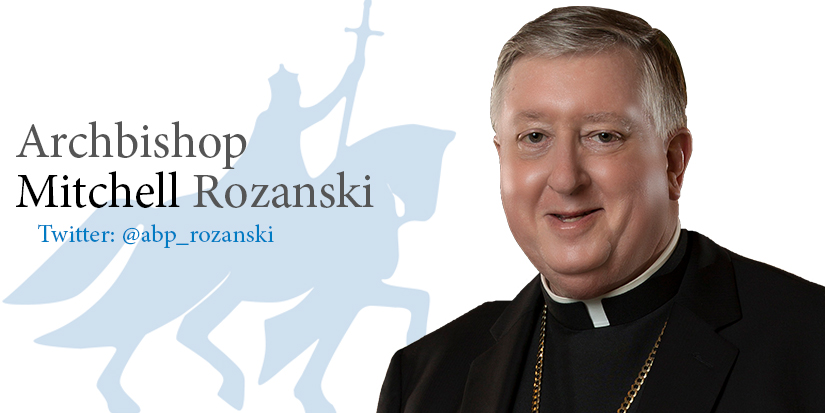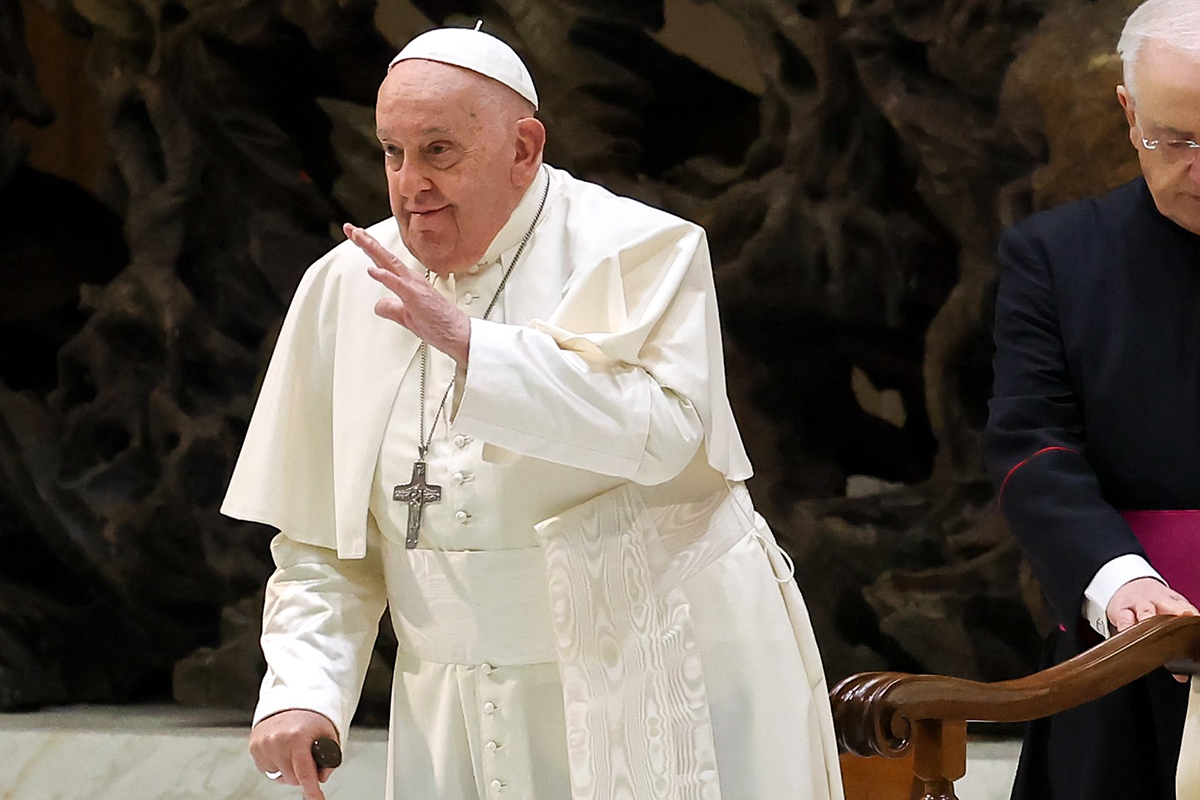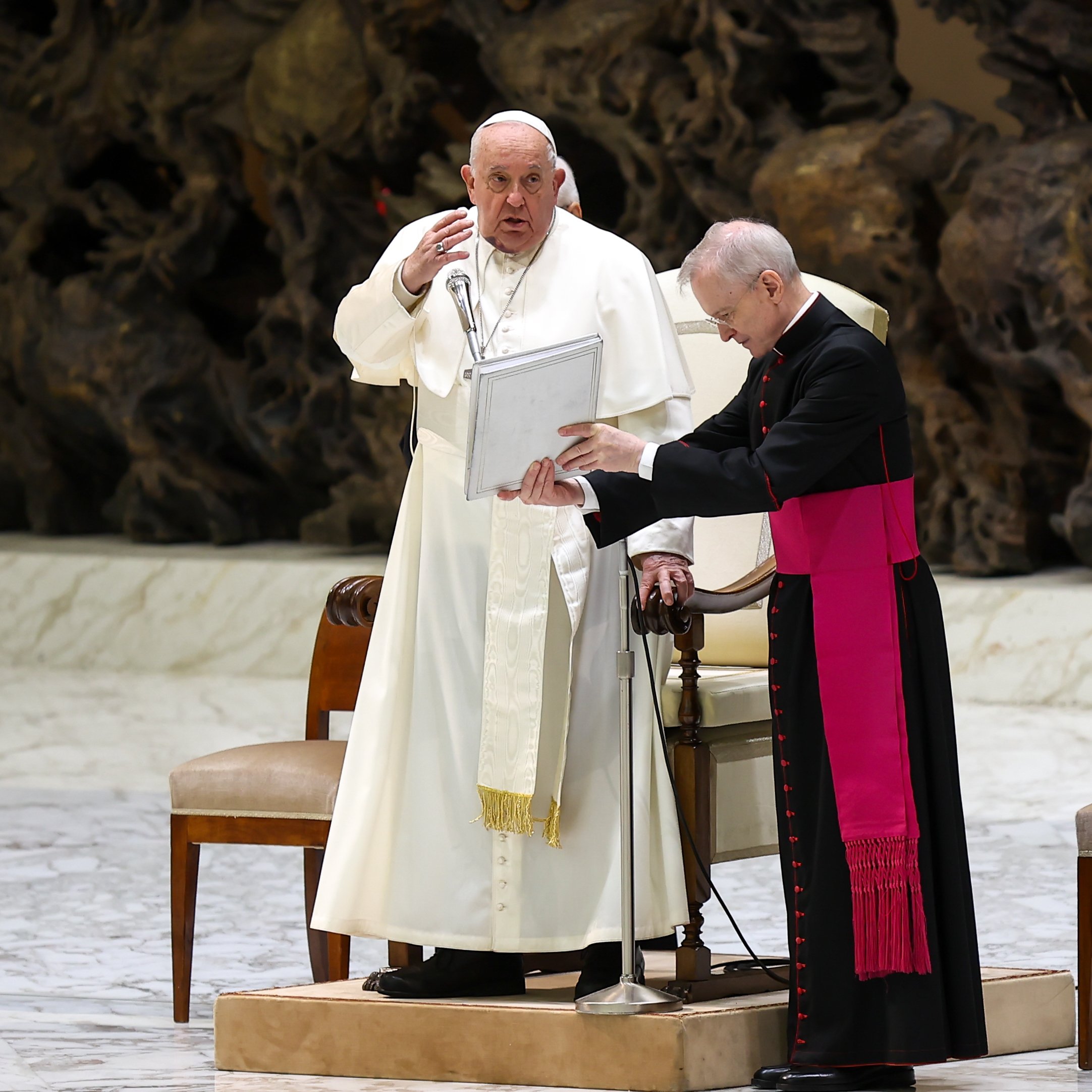SERVE THE LORD WITH GLADNESS | When we enter into relationship with God, time works differently
The Church’s calendar and the readings for Easter week help us enter into ‘the today of the Lord’

Dear Brothers and Sisters in Christ,
What’s your experience of time?
In this week after Easter, the Church’s calendar and readings are trying to teach us a different sense of time. Every day is celebrated as Easter, and we hear about an appearance of the Risen Lord. We’re not moving through a sequence and on to the next thing. We’re taking all week to unpack this one day, as though time were working differently.
And that’s precisely the point: Time does work differently, and has acquired a new meaning, in light of the resurrection of Jesus.
This is one of the intriguing themes of the Catechism of the Catholic Church, especially in its section on prayer. The Catechism speaks of “the today of the Lord.” In doing so, it’s articulating the fact that God is beyond time, a truth articulated in 2 Peter 3:8 this way: “With the Lord one day is like a thousand years and a thousand years like one day.” When we enter into relationship with God, time works differently.
We have intimations of that in our experience when time moves quickly or slowly, when time seems empty or full. Clock time doesn’t change; our experience of time does. The meaning of that experience is revealed in the resurrection: we are called to live in time in a way that rises above time.
In the Incarnation, the infinite God entered into the finite world and transformed it. Similarly, in the resurrection, God’s eternity breaks into the temporal universe and transforms it. The Church’s calendar and the readings for Easter week are meant to be a school for entering into that new sense of time — for entering into “the today of the Lord.”
What are we meant to do with this new sense of time? Fortunately, the readings give guidance on that.
Every day this week, in almost every reading, the pattern is the same: A person encounters the risen Lord and then gives witness to what they have seen.
Regarding the encounters, it’s interesting to note that some people recognize the risen Jesus right away, while others experience Him before they recognize Him. That mirrors our own experience. Sometimes we know we’re encountering Jesus. Sometimes we don’t know we’ve encountered Him until we reflect on it afterward. We need some help opening our eyes! This week we’re meant to slow down, return to the place of encounter and savor the presence of Jesus.
When it comes to bearing witness, we have some work to do. St. Peter says: “It is impossible for us not to speak about what we have seen and heard.” Sometimes it seems like this is the point at which Catholic practice simply contradicts Scripture. We try to find every excuse not to speak about what we have seen and heard!
The news media doesn’t hesitate to speak about its perspectives. They know it matters what people think, because how people think shapes how they act.
The chief priests knew this as well. That’s why they told the guards, “Tell people that His disciples stole the body of Jesus while we slept — that’s why the tomb is empty.” It matters what story gets told. How the facts are interpreted and understood shapes how people live.
We need to tell our story. We need to get in the game, to speak about what we have heard and seen. It’s not just a fact of human nature that this matters, it’s the command of Jesus: “You are witnesses of these things. Go into the whole world and proclaim the Gospel.” That’s how we’re meant to use our new sense of time.
Christ is Risen. He is risen, indeed. Happy Easter!






